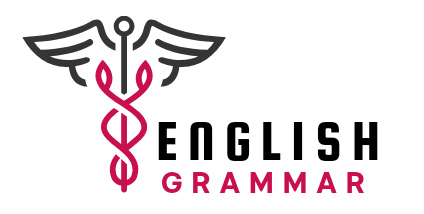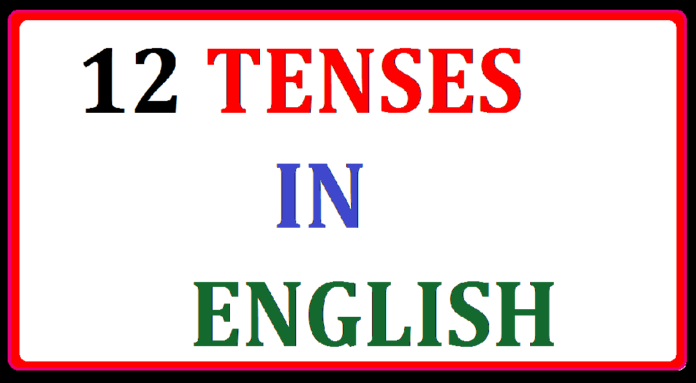12 Types of Tenses in English Grammar with Examples and Formula | English tenses are grammatical categories that help us express the time of actions. The Principles of Tenses in English are also described in this article.
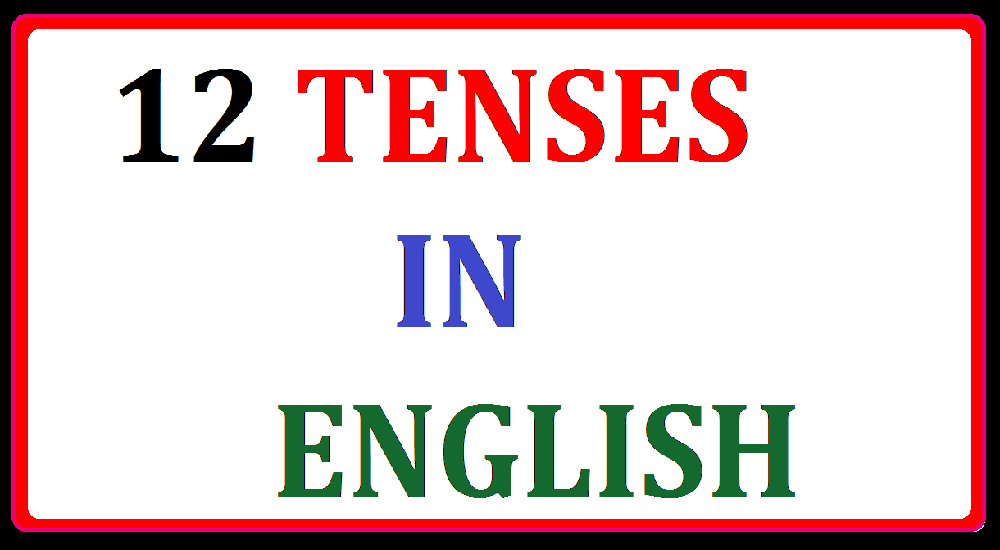
Tenses: Definition in English
English tenses are grammatical categories that help us express the time of actions, events, or situations. They indicate whether something happened in the past, present, or future. Whether the work has been completed or is still incomplete.
The Principles of Tenses In English
Understanding the principles of tenses in English grammar are very important for clear and accurate communication. The formulas will help you form sentences in different tenses correctly, increasing your ability to communicate effectively in English.
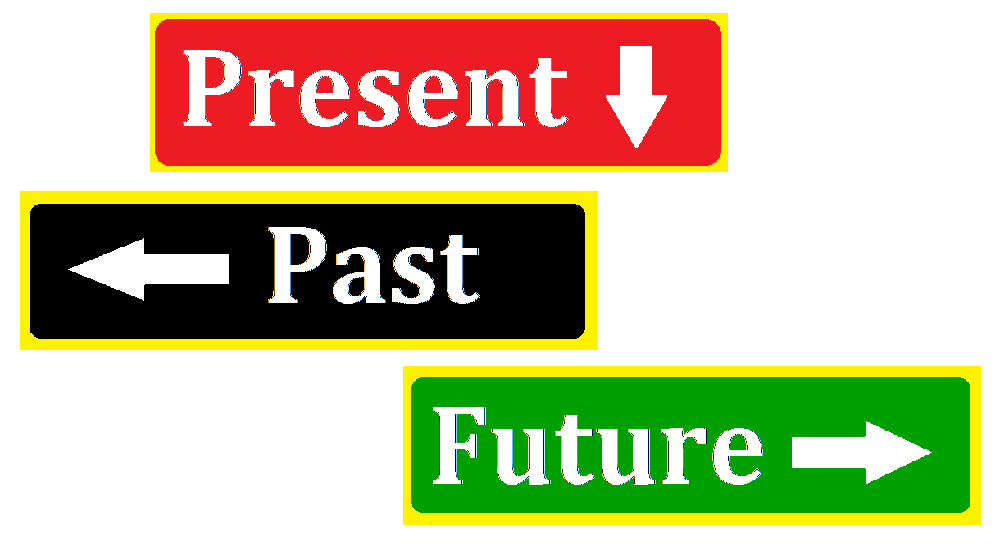
Tenses in English are divided into three periods:
- Present Tense
Present time is called the present tense.
- Past Tense
The past time is called the past tense.
- Future Tense
The time to come is called the future tense.
From this point of view, each period has four parts:
- Simple/Indefinite Tense
- Continuous Tense
- Perfect Tense
- Perfect Continuous Tense
List Of Tenses In English Grammar
In the same way, there are 12 types of tenses in English which are listed below.
1. Present Indefinite Tense
2. Present Continuous Tense
3. Present Perfect Tense
4. Present Perfect Continuous Tense
5. Past Indefinite Tense
6. Past Continuous Tense
7. Past Perfect Tense
8. Past Perfect Continuous Tense
9. Future Indefinite Tense
10. Future Continuous Tense
11. Future Perfect Tense
12. Future Perfect Continuous Tense
12 Types Of Tenses With Examples And Formula
There are twelve types of tenses in English according to their rules, which have been given below.
1. Simple Present Tense / Present Indefinite Tense:
The simple present tense describes habitual actions, universal truths, and states of being. This is the tense we use for things that are always true or happen regularly. But it is not known whether the work is ready or will be completed; hence, it is called the present indefinite tense.
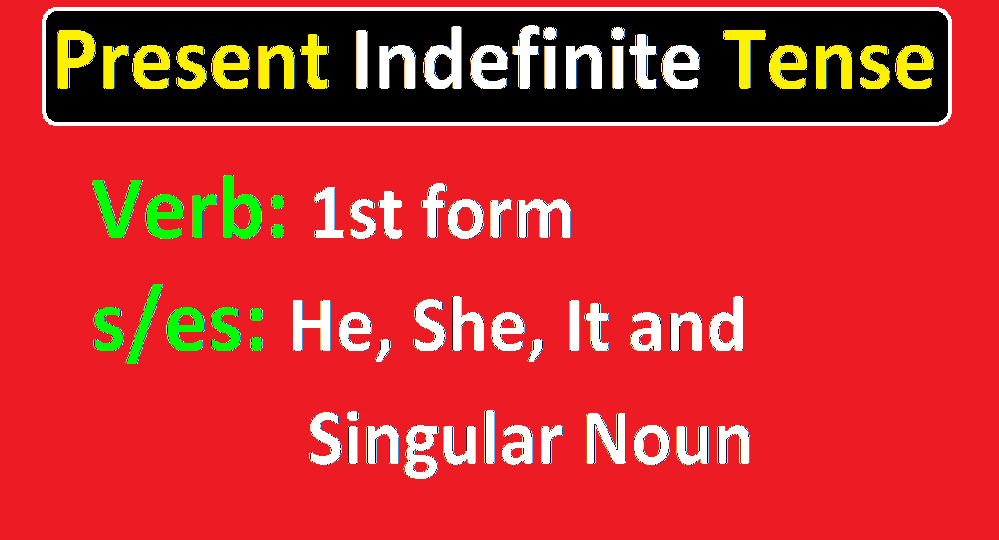
– Formula:
Subject + 1st form of verb + (s/es with singular) + Object
The subject refers to the doers of the sentence. He, She, It, They, I, We, You, and the nouns are subjects.
The object refers to the sentence that is being worked on. If the sentence is started by the pronoun (He, She, It) or any singular noun,’s/es’ is added to the verb.
– Examples:
- He goes to college.
- She goes to college.
- I go to college.
- You go to college.
- They go to college.
- We go to college.
- Ali teaches English.
- The sun rises in the east.
Click the link to learn more about the present indefinite tense sentences.
2. Present Continuous Tense:
The present continuous tense, also called the present progressive tense, describes actions happening at or around that time. It is a condition that shows the continuation of a task.

– Formula:
Subject + (helping verb) is/are/am + 1st form of verb + ing + object
– Examples:
- He is going to college.
- She is going to college.
- I am going to college.
- You are going to college.
- They are going to college.
- We are going to college.
- Ali is teaching English.
- He is playing hockey.
- She is cooking food.
- I am reading a book.
Click the link to learn more about the present continuous tense sentences.
3. Present Perfect Tense:
The past and present are connected in the present perfect tense. It shows the completion of an action in the present tense in English. It describes actions that happened at an unspecified time in the past or actions that started in the past and continue to the present.
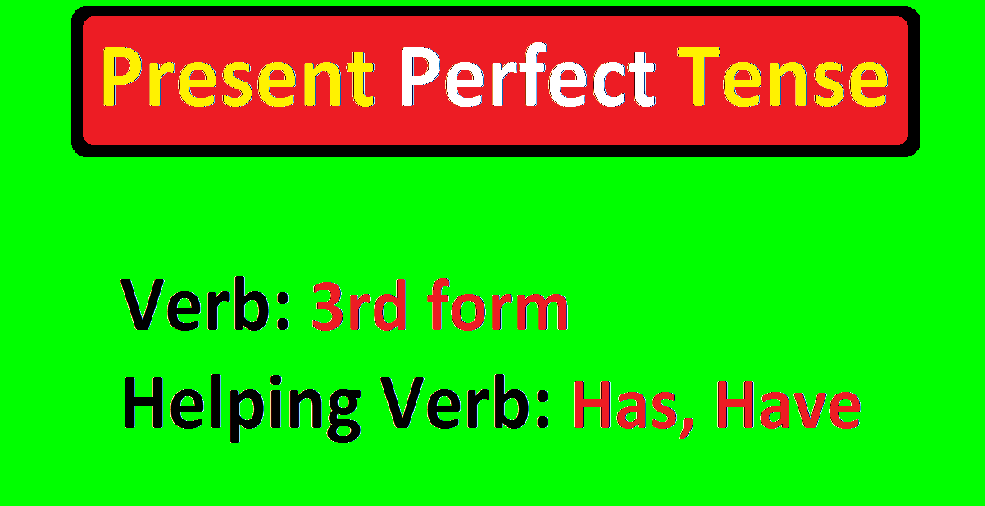
– Formula:
Subject + has/have (helping verb) + 3rd form of verb + object
– Examples:
- He has gone to college.
- She has gone to college.
- They have gone to college.
- I have gone to college.
- You have gone to college.
- We have gone to college.
- She has read many books.
- They have finished their homework.
Click the link to learn more about the present perfect tense sentences.
4. Present Perfect Continuous Tense:
The present perfect continuous tense highlights actions that started in the past and are still continuing. It emphasises the duration of the activity.

– Formula:
Subject + has/have + been + 1st form of verb + ing + object + since/for
– Examples:
- He has been going to Lahore since morning.
- She has been going to college for two hours.
- I have been going to college for two hours.
- You have been going to college for two hours.
- We have been going to college for two hours.
- They have been going to college for two hours.
- It has been raining since morning.
- Ali has been reading since morning.
Click the link to learn more about the present perfect continuous tense sentences.
5. Simple Past Tense / Past Indefinite Tense:
Tenses in English, actions that took place and were completed in the past are expressed in the simple past tense. It’s straight-forward and to the point.
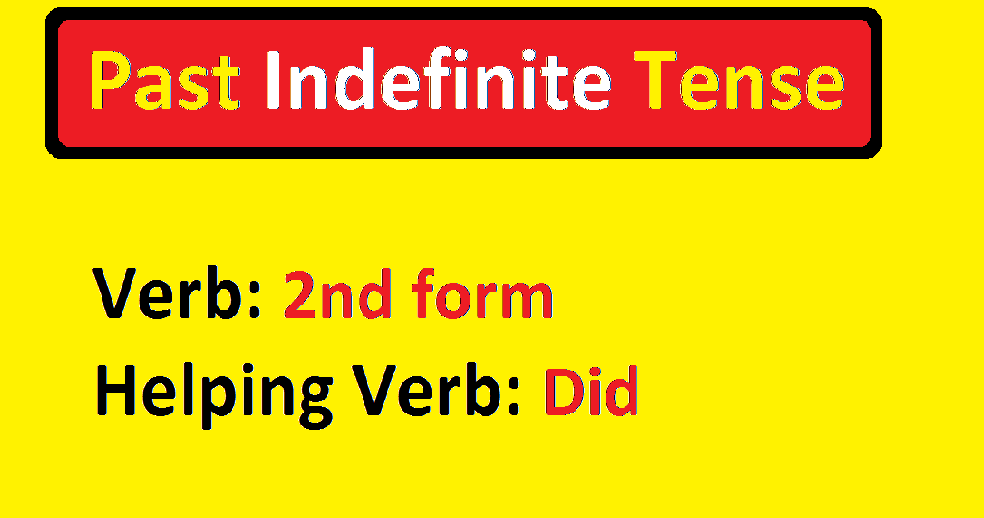
– Formula:
Subject + 2nd form of the verb + Object
– Examples:
- He went to college.
- She went to college.
- They went to college.
- I went to college.
- You went to college.
- We went to college.
- She read a book yesterday.
- Sania watched a movie yesterday.
Click the link to learn more about the past indefinite tense sentences.
6. Past Continuous Tense:
The past continuous tense describes actions that were happening at a particular moment in the past. In it, the action is continuous in the past tense.
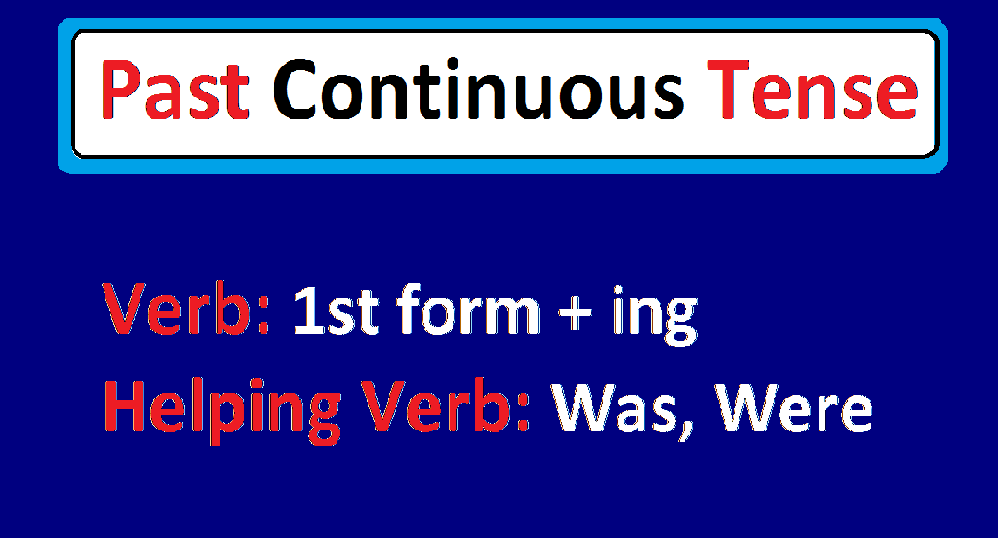
– Formula:
Subject + was/were (helping verb) + 1st form of verb + ing + Object
– Examples:
- He was going to college.
- She was going to college.
- They were going to college.
- We were going to college.
- You were going to college.
- I was going to college.
- Sara was cooking dinner.
Click the link to learn more about the past continuous tense sentences.
7. Past Perfect Tense:
The past perfect tense talks about actions that were completed before another action in the past. In it, a work has been perfected in the past.
Tenses in English, this tense is mostly used when two actions are described, one complete and the other incomplete in the past.
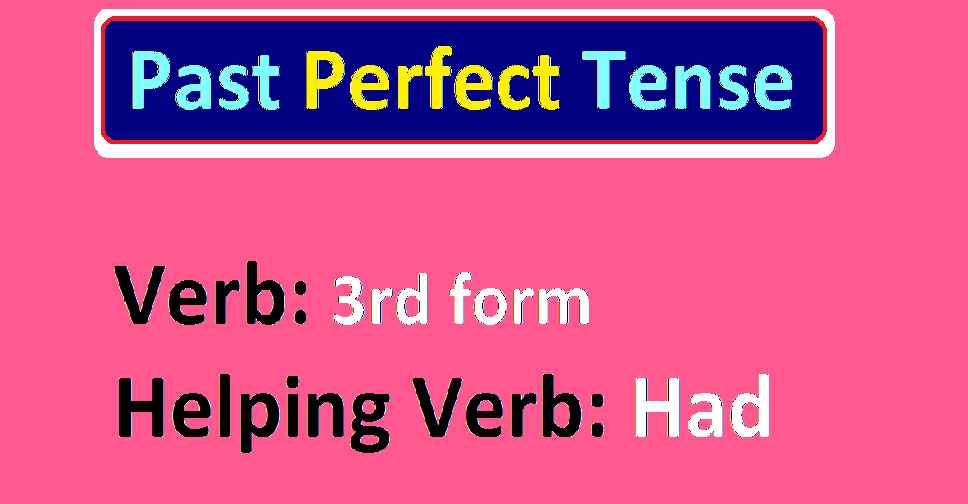
– Formula:
Subject + had + 3rd form of the verb + Object + Adverb
– Examples:
- He had already gone to college.
- She had already gone to college.
- They had gone to college before he reached.
- We had gone to college before the teacher came.
- You had gone to college when I reached.
- I had gone to college before the teacher came.
- Akram had already read the book.
- They had never seen the movie.
Click the link to learn more about past perfect tense sentences.
8. Past Perfect Continuous Tense:
The past perfect continuous tense emphasises the duration of actions that began in the past and continued to another point in the past.
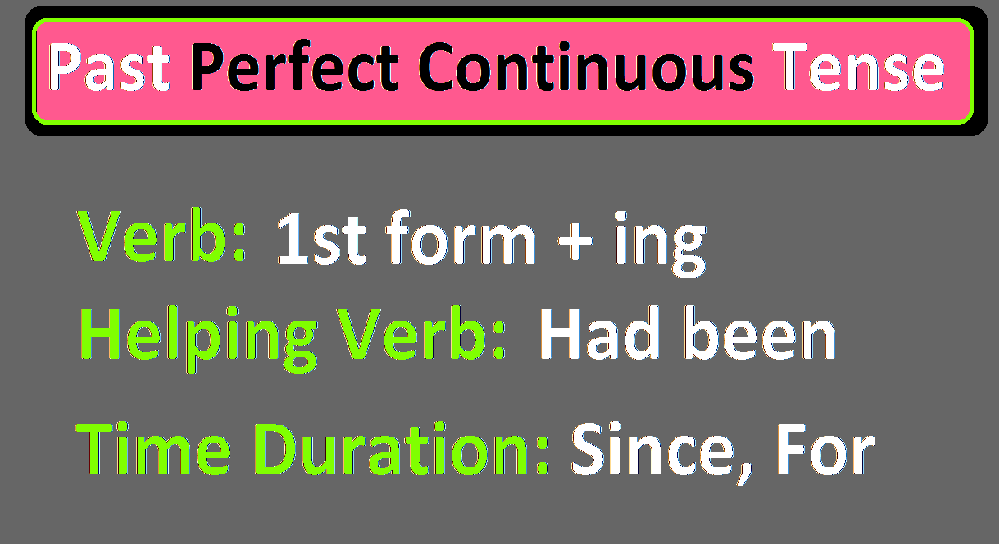
– Formula:
Subject + had + been + 1st form of verb + ing + object + since/for
– Examples:
- He had been going to college for two hours.
- She had been going to college for two hours.
- We had been going to college for two hours.
- They had been going to college for two hours.
- I had been going to college for two hours.
- You had been going to college for two hours.
- She had been reading for an hour.
- Aslam had been working there for five years.
Click the link to learn more about past perfect continuous tense sentences.
9. Simple Future Tense:
The simple future tense talks about actions that will take place in the future. It is used to describe work to be done in the future. Tenses in English, (“will” or “shall”) are used as helping verb for future indefinite tense in English.
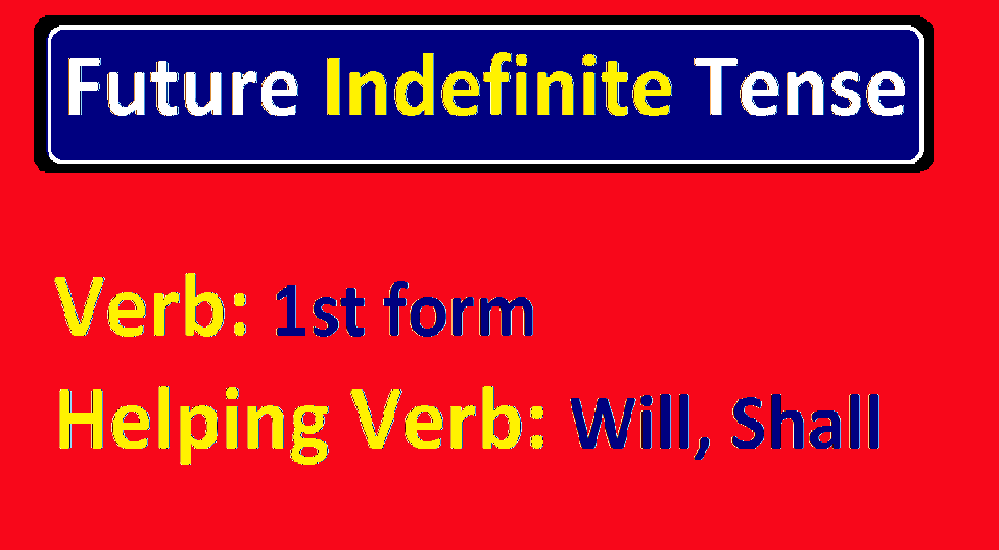
– Formula:
Subject + will/shall + 1st form of verb + object
– Examples:
- He will go to college.
- She will go to college.
- They will go to college.
- I shall go to college.
- We shall go to college.
- You will go to college.
- Shama will read a book.
- They will travel to Lahore.
Click the link to learn more about future indefinite tense sentences.
10. Future Continuous Tense:
The future continuous tense describes actions that will be happening at a specific time in the future. It will continue to work in the future.
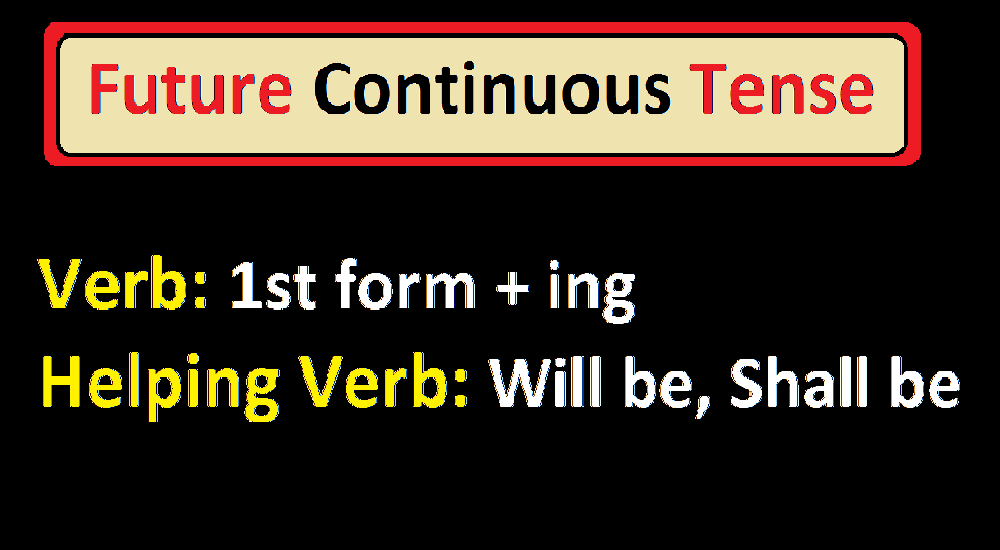
– Formula:
Subject + will be + 1st form of verb + ing + object
– Examples:
- He will be going to college.
- She will be going to college.
- They will be going to college.
- We will be going to college.
- I will be going to college.
- She will be reading a book.
- Hamza will be working tomorrow.
Click the link to learn more about future continuous tense sentences.
11. Future Perfect Tense:
The future perfect tense talks about actions that will be completed before a certain point in the future. A work in it is being completed in the future.
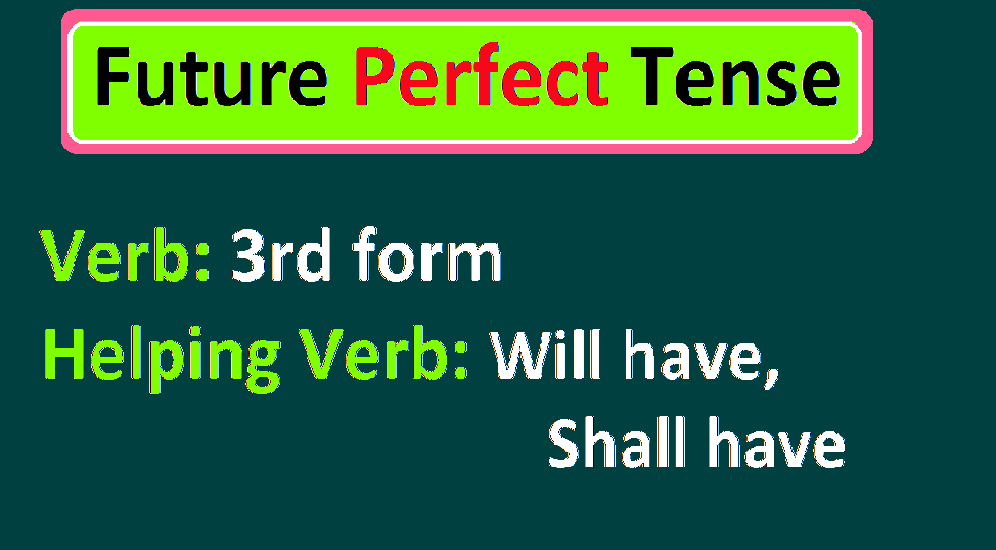
– Formula:
Subject + will have + 3rd form of verb + object
– Examples:
- He will have gone to college.
- She will have gone to college.
- They will have gone to college.
- We will have gone to college.
- I will have gone to college.
- She will have read the book.
- Shoaib will have finished his work.
Click the link to learn more about future perfect tense sentences.
12. Future Perfect Continuous Tense:
Tenses in English, Activities that will take place at a particular point in the future are described in the future perfect continuous tense.
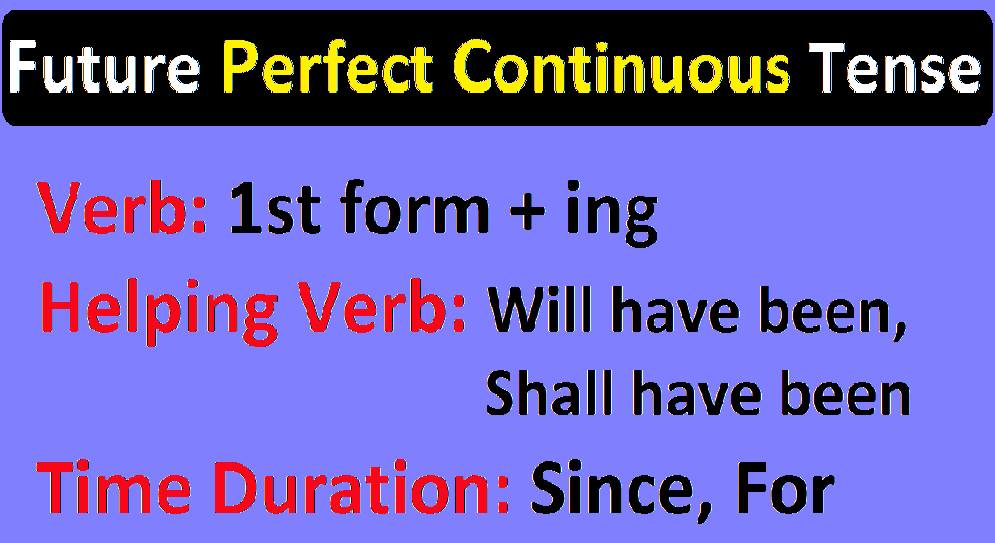
– Formula:
Subject + will/shall + have been + 1st form of verb + ing + Object + since/for
– Examples:
- He will have been going to college for two hours.
- She will have been going to college for two hours.
- They will have been going to college for two hours.
- We will have been going to college for two hours.
- You will have been going to college for two hours.
- I have been going to college for two hours.
Click the link to learn more about future perfect continuous tense sentences.
Conclusion:
Tenses in English grammar are the backbone of communication. They allow us to act on time, giving clarity and meaning to our sentences. Whether you’re talking about your daily routine, memorable holidays, or your future plans, understanding the tenses in English will help you express yourself accurately and effectively.
